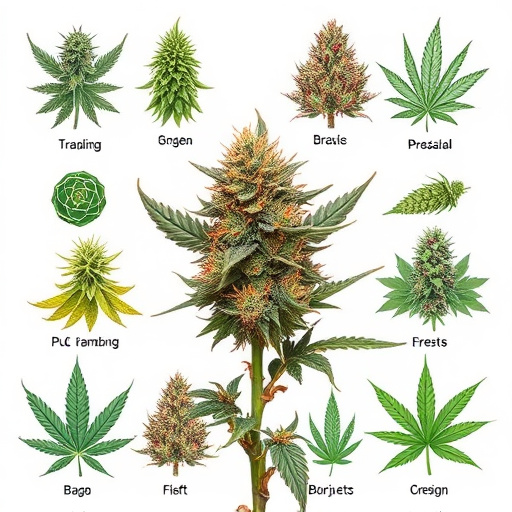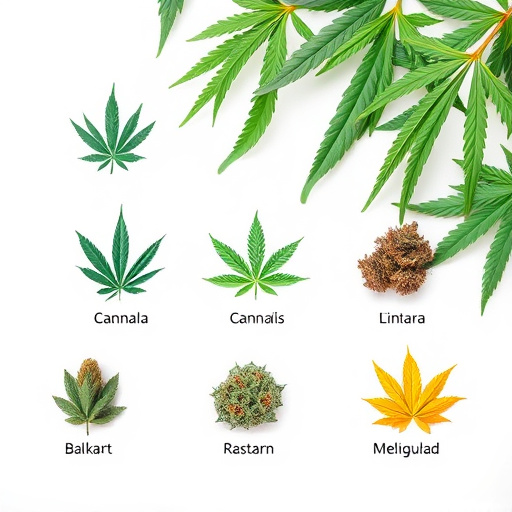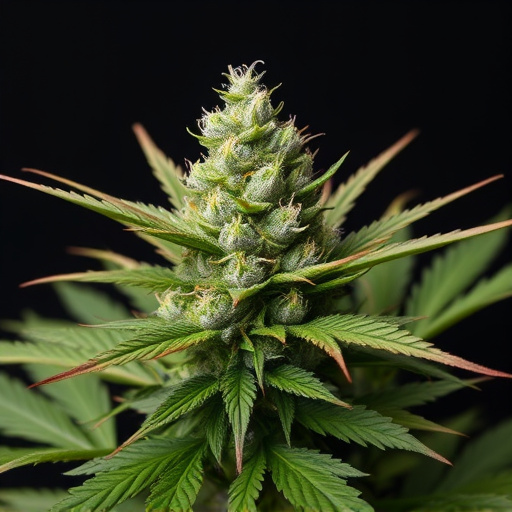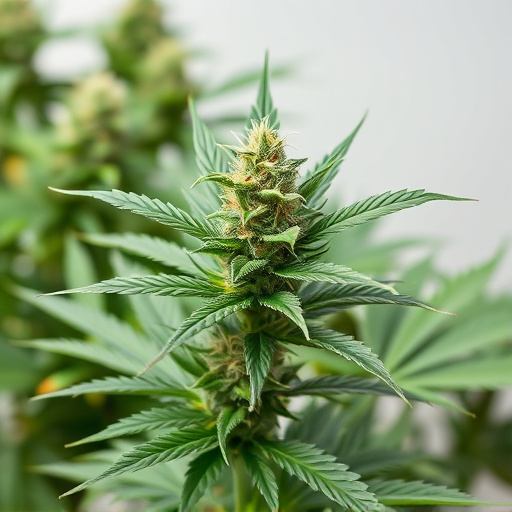TL;DR:
Medicial cannabis strains, when smoked or used, can cause immediate short-term side effects including dry mouth, red eyes, increased heart rate, coordination issues, and heightened sensitivity to sounds and sights. These effects vary based on individual tolerance and strain composition (like THC vs. CBD). High-potency products may worsen cognitive functions like memory and concentration, particularly in young users. Additionally, cannabis use can significantly impair coordination and balance, especially with higher THC concentrations, posing a risk of accidents for new and occasional users alike. Responsible use necessitates understanding these variables and choosing strains wisely to mitigate side effects.
Smoking weed, or using medicinal cannabis strains, can have both short-term and long-term side effects that are often overlooked. While it’s known for its potential therapeutic benefits, regular use comes with risks. From memory and concentration issues to respiratory problems and mental health concerns, understanding these effects is crucial for informed decision-making. This article explores the various side effects of medicinal cannabis strains, delving into specific symptoms, long-term consequences, and strategies like strain choices and microdosing to minimize negative impacts.
- Short-Term Side Effects of Medicinal Cannabis Strains
- – Memory and concentration issues
- – Impaired coordination and balance
Short-Term Side Effects of Medicinal Cannabis Strains

Smoking medicinal cannabis strains, like any substance, comes with short-term side effects that users should be aware of. These can include immediate physical and mental responses such as dry mouth, red or bloodshot eyes, increased heart rate, and coordination issues. The latter may lead to difficulties in performing tasks that require fine motor skills. Additionally, many users experience a distorted sense of time and heightened sensitivity to sounds and sights, often described as an intensification of the senses. These effects are generally temporary and subside as the body metabolizes the substance.
However, it’s important to note that the specific side effects can vary greatly depending on the individual, their tolerance level, and the particular strain consumed. Some strains known for their potent THC content may induce more intense anxiety or paranoia in users who aren’t accustomed to them. Conversely, certain low-THC, high-CBD strains are touted for their potential to reduce stress and promote relaxation without the same adverse mental effects. Understanding these variables is crucial when navigating the short-term experiences associated with medicinal cannabis strains.
– Memory and concentration issues

Smoking weed, or using medicinal cannabis strains, can have a variety of effects on cognitive functions, with memory and concentration being among the most commonly reported issues. While some users claim that certain medicinal cannabis strains can aid in relaxation and mental clarity, research suggests that regular consumption can impair these functions over time. Short-term effects may include difficulty focusing, reduced attention span, and even forgetfulness.
These cognitive impairments can be more pronounced in individuals who start using cannabis at a young age or those who consume high-potency strains. The impact on memory and concentration can affect daily life, making it harder to complete tasks that require sustained mental effort, such as studying, working, or driving. Understanding these potential side effects is crucial for both recreational and medicinal users, especially when selecting appropriate cannabis strains to minimize cognitive disruptions.
– Impaired coordination and balance

Smoking weed, or using medicinal cannabis strains, can have immediate and long-term effects on the body, one of which is impaired coordination and balance. This side effect is often underemphasized but can be quite significant, especially for new users. The active compounds in cannabis, particularly THC (tetrahydrocannabinol), interact with the endocannabinoid system responsible for regulating motor control and sensory perception. As a result, individuals may experience dizziness, lightheadedness, and difficulty maintaining stable posture or performing fine motor tasks.
The impact on coordination can be more pronounced when consuming higher concentrations of THC, especially in recreational settings where users might not be aware of the specific medicinal cannabis strains they are using. Even occasional users may notice a disruption in balance, which can lead to accidents or falls. Understanding these potential side effects is crucial for both recreational and medicinal cannabis consumers, as it underscores the importance of responsible use and awareness of individual tolerance levels.
While medicinal cannabis strains offer potential therapeutic benefits, it’s crucial to recognize the short-term side effects, such as memory and concentration impairments, and impaired coordination. These effects can significantly impact daily functioning. Understanding these potential drawbacks is essential for both patients and healthcare providers when considering the use of medicinal cannabis. By being aware of these temporary issues, users can make informed decisions and take necessary precautions to ensure safety while navigating the effects of these strains.














